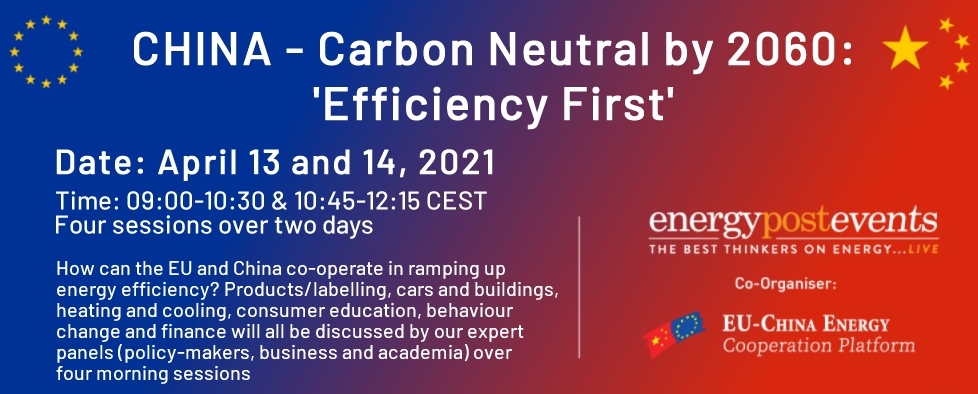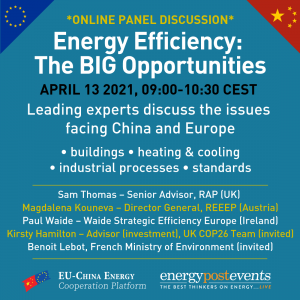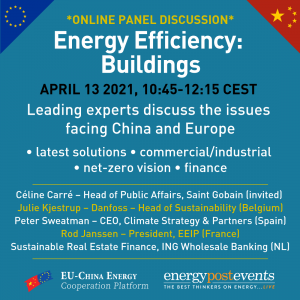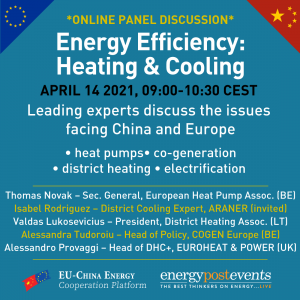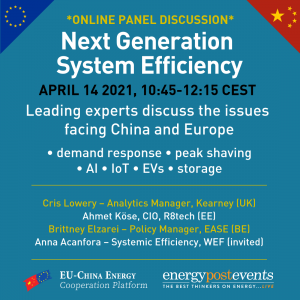Background
At this third 2-day online conference presented in association with EnergyPost, we will look at how Energy Efficiency measures can contribute to decarbonisation efforts both in the EU and in China. What are the opportunities, what should be the approach and how can we collaborate? A timely conference bearing in mind the revisions to the Energy Efficiency Directive for the EU expected in June and COP26 later in the year.
In Europe, EU Member States are committed to reduce primary and/or final energy consumption at an average annual rate of 1.5%. The overall target for 2030 is a 32.5% reduction in consumption compared to 1990 levels.
It is generally expected that we achieved our 2020 target for the reduction of energy consumption. National plans and related policies ensured energy retailers were incentivised to reduce their sales through efficiency measures. But how was this achieved? According to some experts, the low-hanging fruits have already been exhausted and without the demand reduction associated with COVID-19, targets may have been missed. In other words, the difficult work still lies ahead…
Energy Efficient Buildings (new-build and renovation projects), efficient lighting, heating, cooling and appliances and industrial processes are our main focus points but what about transport? Can EV’s and behaviour change make a significant contribution to “The Energy Efficiency Opportunity” that may have to find half of all the emissions reductions needed to keep global temperature within the 1.5 deg C threshold. If so, what are the implications and which are the best paths to efficiency?
The use of personal EVs and public transport in an electrified future world will hinge on consumer engagement, civic planning and efficient smart systems at a city and regional level – all driven by autonomous AI. Flows of electricity will be in both directions and the increased volume of renewables combined with grid-scale and behind-the-meter storage will need a revolution in the flexibility and responsiveness of high- and low-level grids.
Across the discussions we will consider opportunities and areas to collaborate in labelling and design, energy efficient buildings and heating and cooling (including co-generation).
The costs must not outweigh the benefits. Specialist finance is available but the maths have to stack up. The EU states that “Measures should therefore focus on sectors where the potential for savings is the greatest, such as buildings, or where a harmonised approach across regions is necessary, like energy labelling”.
Our experts will offer insights into what regulations are needed, what is technically possible and how it might be financed.
